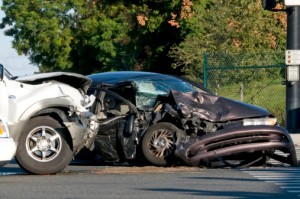By John J. Megjugorac, Esq.
Under New Jersey Rule of Evidence 403, relevant evidence may be excluded by the Court if its probative value is substantially outweighed by the risk of undue prejudice. The party seeking to exclude the evidence bears the burden of convincing the Court that the evidence should be bared under Rule 403. Rosenblit v. Zimmerman, 166 N.J. 391, 410 (2001). 
An example of the N.J.R.E. 403 in practice was seen in the notable case of Gustavson v. Gaynor, 206 N.J. Super. 540 (1986). In Gustavson, a motor vehicle accident occurred as two cars were attempting to pass each other. Five to six hours prior the accident, defendant had consumed two to three beers. However, there was no evidence that defendant’s consumption of alcohol was in any way causally related to the accident. On appeal, the Appellate Division reversed the Trial Court’s ruling allowing evidence of defendant’s consumption of alcohol. The Gustavson court found that the mere fact that a driver consumed alcohol is alone insufficient to warrant an inference that the driver was intoxicated to the degree that he would be unfit to operate a motor vehicle. Such testimony, without supporting evidence, is unduly prejudicial in view of its capacity to inflame the jury. Balancing the low probative value of providing a narrative against substantial prejudice, the Gustavson Court held that the admission of defendant’s prior alcohol consumption was a reversible error. The Court expressly noted that a narrative could have been provided by giving general rather than specific references to defendant’s activities before the accident.
Understanding the rules of evidence is a critical part of a litigation attorney’s job. Our attorneys have the knowledge and experience to handle every aspect of your personal injury case, including trial. If you have been involved in an accident, contact the Ginarte Law Firm today at 1-(888)-GINARTE or use our online contact form.
